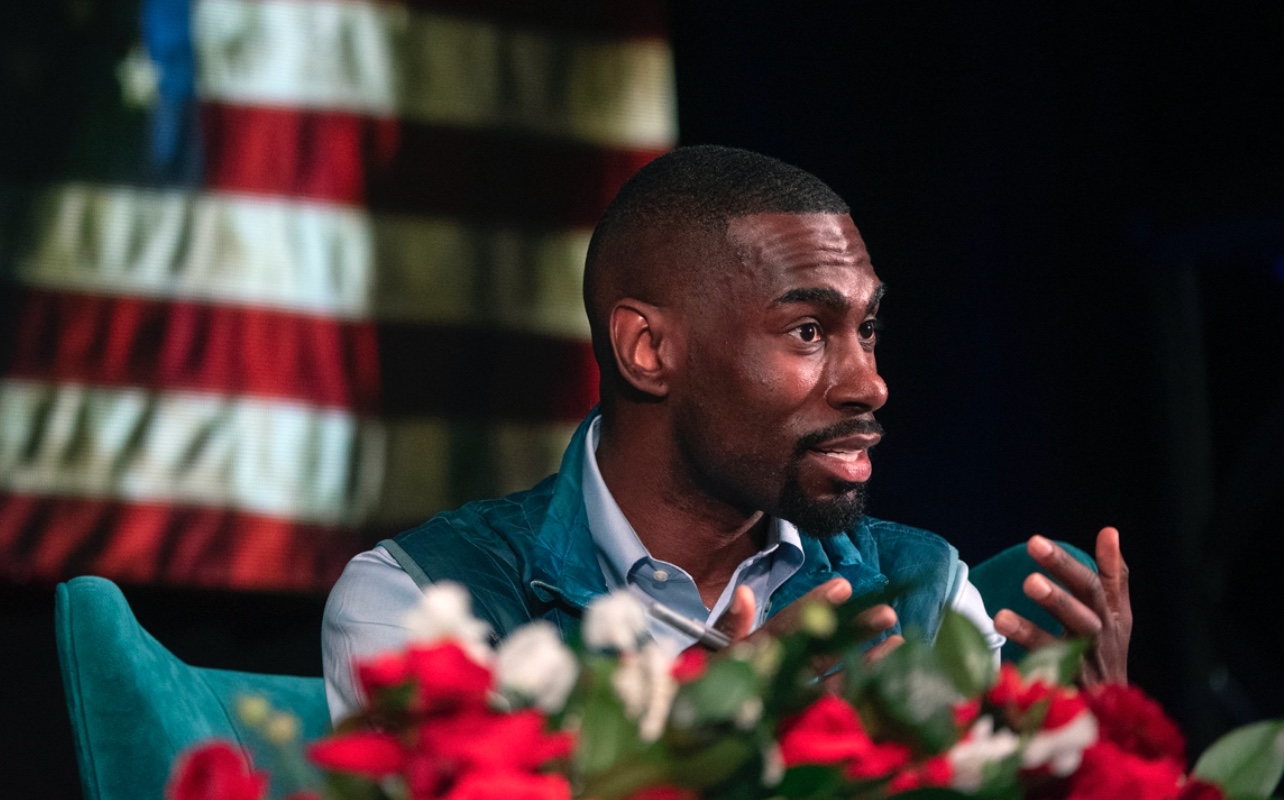
April 19, 2024
Supreme Court Sides With Police Officer’s Lawsuit, Rejects Black Lives Matter Activist’s First Amendment Appeal
What about protestors' rights?
The U.S. Supreme Court granted permission for a lawsuit to proceed against Black Lives Matter activist DeRay Mckesson, who led a protest in Louisiana that resulted in a police officer being injured.
Justices rejected an appeal on April 15 filed by Mckesson regarding the 2016 incident where supporters flooded the streets protesting over the police killing of a Black man, Alton Sterling, in Baton Rouge. A Baton Rouge police officer shot Sterling on July 5, 2016, after a struggle occurred outside a convenience store where he was selling homemade CDs.
In the lawsuit, Mckesson v. Doe, Baton Rouge police officer John Ford claimed he was hit by a “rock-like” object by an unidentified protestor. Still, he sued Mckesson as the organizer for negligence. According to Reuters, Mckesson was arrested on the same day, but charges were later dropped.
During the early stages of the case, the high court felt the issue had “implications for First Amendment rights.” However, the justices left the issue up to the lower courts. Justice Sonia Sotomayor wrote a brief opinion stating they shouldn’t read too much into it and the court’s “denial today expresses no view about the merits of Mckesson’s claim.”
In 2017, a federal judge threw the lawsuit out, but the 5th U.S. Circuit Court of Appeals panel ruled 2-1 that the officer should be allowed to argue that Mckesson didn’t use reasonable care in leading the protesters onto a highway, resulting in a police confrontation. The court rejected an argument that the lawsuit mimicked a 1982 Supreme Court ruling involving Black civil rights activists in Mississippi that limited access for protest leaders over how others acted.
In the ruling, Judge Don Willett touched on Dr. Martin Luther King Jr.’s March on Selma in 1965, where peaceful protectors marched over the disenfranchisement of Black voters. Political uprisings, from picketing to riots, have “marked our history from the beginning,” Willett noted. As a dissenting justice, Willett stood in favor of both the officer and Mckesson. “He deserves justice,” Willett wrote.
“Unquestionably, Officer Doe can sue the rock-thrower. But I disagree that he can sue Mckesson as the protest leader.”
Under that lower court decision, a protest organizer could face financial consequences if a single attendee of the masses commits an illegal act.
Civil rights groups and free speech advocates feel the suit threatens the right to protest. Attorneys from the American Civil Liberties Union, representing Mckesson, went before the court arguing that allowing the suit to continue would discourage people from protesting. “Given the prospect that some individual protest participants might engage in law-breaking, only the most intrepid citizens would exercise their rights if doing so risked personal liability for third-party’s wrongdoing,” the ACLU said.
This isn’t the first time Mckesson’s case has reached the Supreme Court’s desk. In 2020, justices ordered an additional review by lower courts to determine whether Louisiana state law allowed for the officer’s claim.